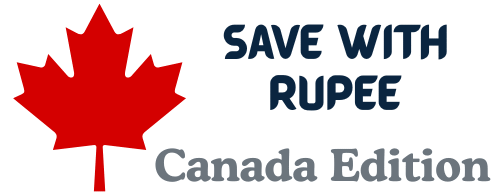Discover expert Canadian real estate investment tips for 2025 with real-life stories, practical strategies, FAQs, and market insights. Learn how to grow your wealth in Canada’s evolving property landscape today.

Introduction
Real estate investment in Canada continues to be one of the most effective ways to build long-term wealth and achieve financial stability. Despite challenges such as market fluctuations and changing regulations, the Canadian property market offers diverse opportunities suitable for both novice and seasoned investors. With steady population growth, regional market variations, and innovations in technology and sustainability, 2025 presents promising prospects for those looking to invest. This comprehensive guide dives deep into practical tips, personal stories, investment strategies, and key considerations to empower investors on their wealth-building journey in Canadian real estate.
Why Invest in Canadian Real Estate in 2025?
Investing in Canadian real estate offers several advantages that make it a compelling asset class for wealth accumulation. Canada’s expanding population, largely driven by immigration, is increasing demand for housing across major cities and growing regions alike. This demographic pressure supports long-term price appreciation and rental demand. Furthermore, Canadian cities showcase diverse opportunities: from large urban centres with robust economies to emerging markets with potential for high growth.
Real estate also delivers diversification benefits, providing a tangible asset less volatile than stocks or bonds. Additionally, evolving trends like green buildings, energy efficiency, and integration of property technology (proptech) enhance the appeal and sustainability of investments.
Ultimately, real estate in Canada remains a proven pathway to creating consistent cash flow and capital growth, especially when coupled with informed strategies and careful planning.
Real-Life Story: Building Wealth from a Modest Start
Consider the journey of a Canadian investor who began in 2018 by purchasing a modest triplex in a small town for $83,000. Through strategic leveraging using low-interest mortgages and personal lines of credit, this investor made minor but effective cosmetic renovations to increase the property’s appeal. Over the course of seven years, they expanded their holdings from this initial purchase to a portfolio of three properties worth over $1 million. This journey was marked by patience, smart financing decisions, and reinvesting gains to compound wealth. Today, this portfolio generates substantial rental income while continuing to appreciate in value. This story illustrates that even modest beginnings, when combined with diligence and strategy, can lead to significant real estate success.
Popular Canadian Real Estate Investment Strategies
Understanding different investment avenues in Canadian real estate is essential to choosing the best approach aligned with financial goals and risk tolerance. Below is an overview of key strategies:
| Strategy | Description | Advantages | Considerations |
|---|---|---|---|
| Direct Rental Ownership | Buying residential or multi-family properties to rent out | Generates steady rental income, potential appreciation | Requires landlord management, financing |
| Real Estate Investment Trusts (REITs) | Investing passively in diversified property portfolios via the stock market | Liquidity, accessibility, diversification | Subject to market fluctuations, no direct control |
| Real Estate Crowdfunding | Pooling money with other investors to fund larger real estate projects | Low entry cost, diversification | Platform risk, due diligence essential |
| Pre-Construction Flips | Purchasing property before completion to sell for profit | Potentially high returns | Dependent on market timing and demand |
| Private Mortgage Lending | Lending money secured by real estate for interest income | Consistent interest payments | Credit and liquidity risks |
Each strategy offers unique benefits and challenges. For beginners, rental property ownership is often the gateway, while experienced investors might diversify across several methods to mitigate risk and optimize returns.
Essential Tips for Successful Investment
- Plan Your Finances: Start with a clear budget including down payment (typically 20% or more for investment properties), closing costs, and reserves to cover unexpected expenses.
- Understand Market Nuances: Canadian real estate markets vary significantly by region. For example, while Toronto and Vancouver offer high demand and liquidity, smaller cities or suburbs may present better rental yields and growth potential.
- Focus on Location: Invest near public transit, employment hubs, quality schools, and amenities. Properties in these areas attract reliable tenants and tend to appreciate more strongly.
- Due Diligence on Property Condition: Inspect properties thoroughly to avoid costly repairs. Sometimes, minor renovations (like painting, flooring, and fixtures) can significantly increase rental value and property appeal.
- Leverage Proptech and Data: Use online tools and apps to analyse market trends, rental rates, and tenant creditworthiness. Technology-driven property management solutions can help you operate efficiently, especially at scale.
- Tax Planning: Understand rental income tax rules; many expenses such as mortgage interest, maintenance, and property taxes are deductible, reducing taxable income. Consult with a tax professional to optimize your tax strategy.
- Maintain a Long-Term View: Real estate tends to reward patient investors. Maintain reserve funds and avoid impulsive decisions based on short-term market movements.
Personal Touch: Managing Investments While Working Full-Time
One young professional shared how they built a multi-property portfolio while balancing a demanding sales career. Using weekends and evenings to oversee minor renovations and communicate with tenants, they maximized cash flow by reinvesting equity through refinancing. This disciplined approach transformed a single property into a $7 million portfolio by age 28. The key was treating real estate investing like a business: meticulous record-keeping, budgeting, and continuous learning ensured sustainable growth alongside a full-time job.
Detailed Comparison Table of Investment Types in Canada
| Aspect | Direct Rental Ownership | REITs | Crowdfunding | Pre-Construction Flips | Private Mortgage Lending |
|---|---|---|---|---|---|
| Initial Capital | High (20%+ down payment) | Low to moderate | Low to moderate | High upfront capital | Moderate |
| Liquidity | Low (property sale required) | High (stock market trading) | Moderate (exit conditions) | Low until sale completion | Moderate to low |
| Control | Full control | None | Limited | Full control | Moderate |
| Risk Level | Medium to high | Market risk | Platform & project risk | High (market timing critical) | Credit risk |
| Time Commitment | High (management, maintenance) | Low | Low to moderate | High (project management) | Low to moderate |
| Income Potential | Rental income + appreciation | Dividends + appreciation | Interest + potential upside | Capital gains | Interest payments |
Frequently Asked Questions (FAQs)
Q: How much money do I need to start investing?
A: Typically, expect to pay at least 20% down on a property purchase. Alternative routes like REITs or crowdfunding can require less capital.
Q: Are foreigners allowed to buy property in Canada?
A: Yes, but additional rules and taxes (such as foreign buyer taxes in some provinces) may apply. Permanent residents have the same rights as citizens.
Q: What about taxes on rental income?
A: Rental income is taxable, but investors can deduct allowable expenses such as mortgage interest, property taxes, maintenance, and management fees.
Q: Which cities offer the best investment opportunities?
A: Key markets include Toronto, Vancouver, Calgary, Montreal, and Ottawa. Emerging markets in smaller cities may provide higher rental yields.
Q: How can I finance multiple properties?
A: Many investors use mortgage refinancing or lines of credit secured against equity in existing properties to fund new acquisitions.
Final Thoughts and Call to Action
Canadian real estate investing in 2025 offers numerous opportunities for building wealth through both direct ownership and alternative investment vehicles. By planning finances carefully, choosing the right strategies, and leveraging emerging market trends and technologies, investors can position themselves for long-term success. The personal stories shared reveal that with patience, smart leveraging, and ongoing effort, building a profitable real estate portfolio is achievable.
Ready to start or expand your Canadian real estate investments with confidence? Assess your financial goals, explore suitable strategies, and connect with trusted professionals to guide your journey. The Canadian real estate market is dynamic and full of potential — don’t miss out on the chance to grow your wealth starting today!
Visit cad.savewithrupee.com for expert insights, up-to-date market news, and tools tailored for Canadian real estate investors.
🍁 Smarter Money Tips for Canada

Discover our guides on credit cards, loans, insurance, and savings designed for Canadian readers.
💡 Explore Canadian Guide


